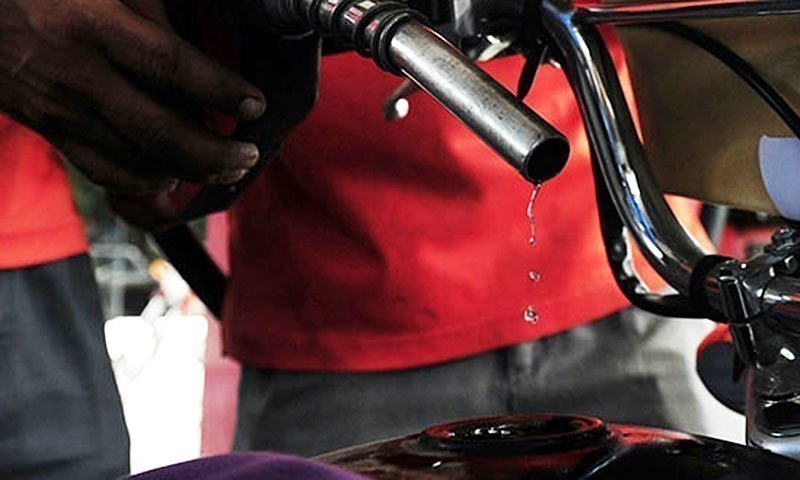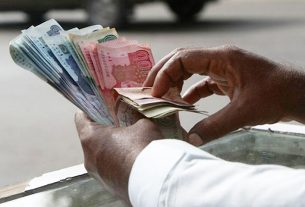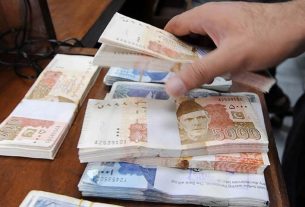ISLAMABAD: In a rapidly evolving situation, the Petroleum Division on Tuesday moved another summary for immediate switching of fuel pricing to quarterly basis, with immediate effect from June 16 with the first price increase of about Rs9-10 per litre.
The fresh move was launched on a day the federal cabinet took notice of fuel shortage across the country and the Ministry of Petroleum conceded for the first time in writing that 77 per cent petrol pumps in Khyber Pakhtunkhwa had completely dried out. Key members of the cabinet are reported to have criticised the Petroleum Division and the Oil & Gas Regulatory Authority for the ongoing crisis and demanded decisive action against those responsible.
Under a similar petroleum shortage in 2015, the then government had suspended all the top officials on key positions of the petroleum supply chain to hold an independent inquiry. None of them could return to their jobs except the then secretary petroleum for insufficient evidence while chairman Ogra was restored on the orders of the court.
Interestingly, the present government has constituted an enquiry committee comprising second tier officers of the Petroleum Division. Some of these incumbent officers also were found wanting when the wheat situation came under pressure a few months ago.
The fresh summary is expected to be taken up by the Economic Coordination Committee (ECC) of the cabinet today (Wednesday) when it also takes up the approval of Risk Allowance equal to one pay for all healthcare workers performing duties related to Covid-19 in the federal government. The ECC is also expected to review wheat procurement in the public sector and urea fertiliser estimates for current year.
Informed source said the summary – seeking quarterly pricing with effect from June 16 to bailout the oil industry facing inventory losses – had been initiated after the 12-point agenda for the ECC had been circulated to various ministries. Various stakeholders have been asked to give their comments on the proposals during the ECC meeting because of paucity of time.
Sources said the ex-refinery or import parity price (IPP) for petrol was estimated to go up from about Rs23 per litre to Rs41 per litre for July, necessitating at least Rs18-19 per litre increase in consumer price unless the government decides to reduce taxes. However, this could be staggered in two phases with Rs9-10 per litre increase on June 16, followed by another similar round with effect from July 1. Likewise, the diesel cost is also estimated to go up by Rs13-15 per litre which should also be divided into two installements to spread out possible political backlash.
Sources said the Petroleum Division on Tuesday wrote to the Oil Companies Advisory Council that the KP government had reported 1,152 sites (77pc) out of 1,508 retail outlets in the provinces which had dried out by June 8.
It said several instructions had already been issued by the Petroleum Division to oil marketing companies (OMCs) to ensure uninterrupted supplies to retail outlets but they had failed to oblige and “are intentionally/wilfully hoarding the product”. It asked the OCAC to use its influence to “replenish the retail outlets and normalise the situation within 24 hours”, or references would be moved to Ogra for cancellation of their licences.
Sources said Ogra had already conducted a hearing against six OMCs who had been issued show-cause notices a few days ago. The OMCs had sought some time to submit evidence as they took position in their written responses that import vessels were cancelled by the Petroleum Division itself which disturbed the supply chain.
Informed sources said the OCAC had last week told the government that it was facing Rs10 billion losses for current month due to the price differential between PSO’s import price and international market price based on Platt’s oilgram.
The OMCs are reported to have again approached the government at the highest level that they would not be in a position to continue their operations because of volatile prices and resultant financial exposure. The pricing frequency should be switched to fortnightly basis if weekly basis was not possible for any political reason, they added.
About 10 days ago, the ECC had rejected an earlier summary of the Petroleum Division that sought switching the monthly pricing of fuel products to fortnightly basis to protect the OMCs and refineries from losses arising out of lower international oil prices. The Petroleum Division had then demanded putting on hold the proposed downward revision in oil prices for 15 days until June 15 to allow the oil industry to recoup some of their losses at existing rates.



